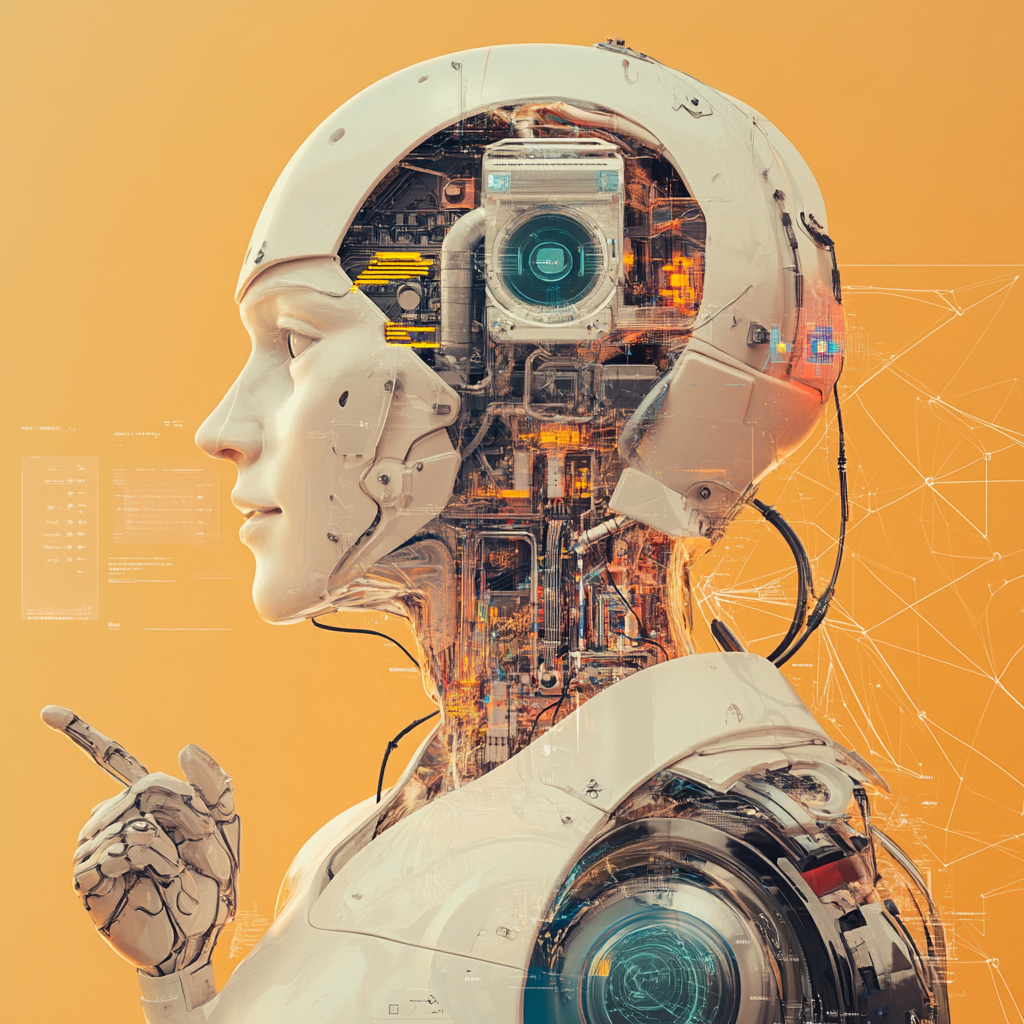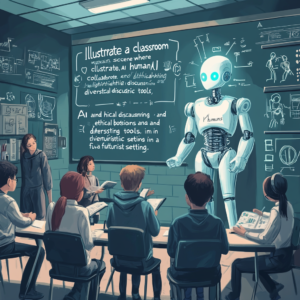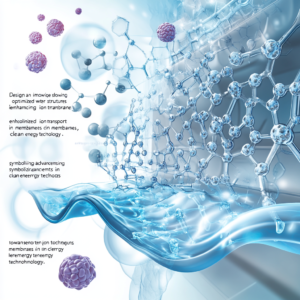
“Navigating the Future of AI: Toby Walsh on Ethics, Regulation, and Global Collaboration”
In a world that feels like it’s accelerating faster than a runaway train, the conversation around artificial intelligence is not just pertinent; it’s vital. Enter Toby Walsh, the Chief Scientist at UNSW.ai, the kind of guy you want leading the charge when it comes to AI discussions. At the India Today Conclave 2025, Walsh didn’t just take the stage—he commandeered it, presenting a narrative that challenges us all to think critically about the future of AI. The question he posed was not merely academic: Who will be the agent, and who will be the master? Now that’s a plot twist worthy of a sci-fi blockbuster.
Let’s set the scene with a bit of background on our star here: Toby Walsh is no mere computer scientist. He’s a British brainiac who’s pulled wisdom from diverse fields, including theoretical physics and mathematics, courtesy of his M.A. from the hallowed halls of the University of Cambridge. His expertise is deeper than the Mariana Trench, with a Ph.D. in artificial intelligence from the University of Edinburgh. Simply put, when he speaks, we should all listen—unless, of course, you're trying to understand it all while juggling flaming swords at the same time.
As he illuminated the gathering at the Conclave, he compared AI to electricity—a potent comparison that carries weight. Electricity is so embedded into our daily lives that we hardly notice it, yet it powers everything from toasters to the internet. Similarly, Walsh argues that AI will soon be omnipresent, seamlessly operating our devices, from smartphones to smart fridges, leaving us to wonder if our appliances are about to start developing a personality, too. But since when did ubiquitousness come without ethical baggage? Walsh tackled this head-on, emphasizing that AI’s proliferation is like inviting a tornado to dinner without asking whether it likes your cooking first.
And here’s where it gets juicy—Walsh’s deep dive into the ethics of AI is like taking a refreshing plunge into a cool lake on a hot summer day. He doesn’t mince words: AI is not inherently evil. But wait! Before you get too cozy, he warns that the potential misuse by those with less-than-pure intentions can result in catastrophic consequences. Think of AI in warfare—yes, he grabbed that grenade, too! From the conflicts in Ukraine to Gaza, AI’s role is increasingly intertwined with the technology of destruction, acting like a double-edged sword. But that’s just the appetizer. The main course is about democracy itself, threatened by the hyperdrive spread of misinformation and polarization powered by AI. Talk about eating your cake and having it too!
Toby doesn’t just raise red flags; he advocates for a blueprint to navigate the storm. His mantra is human oversight and regulation, which, let’s admit, sounds a tad dull. Regulation conjures images of bureaucratic tape and slow progress, but Walsh argues otherwise. Look at nuclear power—the world survived the rigorous regulations without halting innovation. We can do the same for AI, and he points fingers at the tech industry, particularly social media, as the unwitting canaries in the coal mine. They’ve demonstrated just how essential it is to establish proper safeguards before we all find ourselves locked in a Kafka-esque world where we don’t know the difference between truth and fabricated fiction.
Now, let’s add some spice to this conversation. Walsh is crystal clear on who should shape AI’s future—everyone, not just a select Silicon Valley cabal. Picture it: AI being molded by artists, engineers, teachers, farmers—the whole shebang. An "AI for All" summit sounds like a utopia waiting to happen. That’s a vision worth chasing, and let’s be honest, a refreshing perspective in a world where exclusivity often reigns supreme.
India, now that’s a country on the verge of a revolutionary AI wave. With its massive, diverse population and rich reserve of data, Walsh believes India can give the likes of China a run for its money, despite the fact they juggle fewer resources. He smiles upon the thought that innovation is not solely a product of deep pockets, but a testament to creativity and collaboration. As Walsh put it, who needs a multi-million-dollar budget when an ingenious mind can light the way with sheer willpower and innovation?
But here’s where the discussion takes a turn down an unexpected route—consciousness and intelligence. This isn’t just some abstract philosophical musing; it’s the kind of question that keeps scientists awake, staring at the ceiling in the dead of night. Walsh mentioned a survey of 300 AI experts predicting that AI could match human cognitive abilities by 2062, but the looming question about whether machines could ever be conscious remains as elusive as a ghost in a foggy graveyard. Intelligence—even artificial—might be achievable, but consciousness? Now that’s a riddle worthy of centuries of debate.
Speaking of advocacy, Walsh isn’t just holed up in a lab, crunching numbers and writing algorithms. He’s out there, engaging with governments, addressing the United Nations, and rubbing elbows with decision-makers from around the globe. Being on the Who’s Who in AI influencer list isn’t just for show; it’s a testament to his impact. His accolades, including the prestigious Eureka Prize for promoting understanding of science, serve as proof that he’s not just part of the conversation—he’s shaping it.
As Toby wraps up his compelling discourse at the Conclave, we’re left hanging on the precipice of a new future. It’s a world where the agents wield incredible power, yet the question remains: Will they master it or become its unwitting pawns? With Walsh's insightful take as a guide, we must navigate the uncharted waters of AI with intention, regulation, and an inclusive spirit. His reflections shine a light on the path ahead; may we tread with wisdom.
Want to stay up to date with the latest news on neural networks and automation? Subscribe to our Telegram channel: @ethicadvizor

